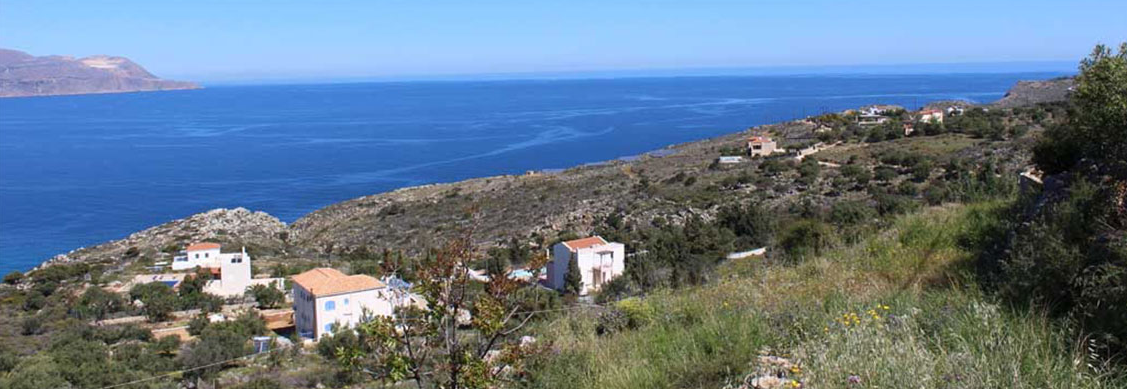Crete, with its stunning landscapes, rich history, and warm Mediterranean climate, has become an attractive destination for expats looking to invest in property. Whether you’re dreaming of building a holiday home, starting a business, or relocating permanently, buying land in Crete can be a rewarding experience. However, the process can be complex, especially for foreigners unfamiliar with Greek laws and regulations. This step-by-step guide will help you navigate the process of buying land in Crete, ensuring a smooth and successful transaction.
Step 1: Research and Define Your Goals
Before diving into the legal and logistical aspects of buying land, it’s essential to clarify your goals and do thorough research. Consider what you want to achieve with the land: building a residence, starting a farm, or developing a commercial property. Each purpose may have different requirements and regulations. Additionally, research different regions of Crete to find the one that best suits your needs. The island is diverse, with coastal areas, mountainous regions, and vibrant cities, each offering unique advantages.
Step 2: Understand the Legal Framework
Buying property in Greece involves navigating a specific legal framework, especially for non-EU citizens. Familiarize yourself with the basic legal requirements, such as obtaining a Greek tax number (AFM) and understanding any restrictions on foreign ownership. Consulting with a local lawyer who specializes in real estate is highly recommended. They can provide invaluable advice, help you understand your rights and obligations, and guide you through the legal process.
Step 3: Engage a Real Estate Agent
A reputable real estate agent can be an invaluable ally in your property search. Look for agents with experience working with expats and a good understanding of the local market. They can help you identify suitable plots of land, arrange viewings, and provide insights into the pros and cons of different areas. Ensure that your agent is licensed and comes highly recommended.
Step 4: Visit Potential Properties
Once you’ve narrowed down your options, plan a trip to Crete to visit potential properties. Seeing the land in person is crucial to understanding its true value and potential. Pay attention to factors such as accessibility, proximity to amenities, the quality of local infrastructure, and the natural environment. Take note of any potential issues, such as steep slopes, flooding risks, or zoning restrictions.
Step 5: Conduct Due Diligence
Before making an offer, conduct thorough due diligence on the property. This includes verifying ownership, ensuring there are no outstanding debts or legal issues, and confirming that the land is suitable for your intended use. Your lawyer and real estate agent can assist with this process. Additionally, check for any zoning or building restrictions that might affect your plans.
Step 6: Make an Offer and Negotiate
Once you have identified the perfect piece of land and completed your due diligence, it’s time to make an offer. Your real estate agent can help you with this, providing guidance on a fair offer price and negotiating terms with the seller. Be prepared for some back-and-forth, and remain flexible while keeping your budget and goals in mind.
Step 7: Secure Financing
If you require financing to purchase the land, explore your options early in the process. Some Greek banks offer mortgages to foreign buyers, but the terms and conditions can vary. Alternatively, you might consider financing through a bank in your home country. Ensure that you have all necessary documentation and understand the financial implications before committing.
Step 8: Finalize the Purchase
Once the seller accepts your offer, you will need to sign a preliminary agreement and pay a deposit, typically around 10% of the purchase price. Your lawyer will prepare the final purchase contract, which must be signed in the presence of a notary. The notary will ensure that all legal requirements are met, and the property is properly transferred to your name.
Step 9: Register the Property
After the purchase is finalized, the property must be registered with the local Land Registry (Ktimatologio). This step is crucial to ensure your ownership rights are legally recognized. Your lawyer will handle this process, ensuring that all necessary documents are submitted and any applicable taxes are paid.
Step 10: Plan Your Development
With the land legally yours, you can start planning your development. Whether building a home or starting a business, you will need to obtain the appropriate permits and approvals. Engage with local architects, builders, and other professionals to bring your vision to life. Ensure that your plans comply with local building codes and regulations.
Conclusion
Buying land in Crete as an expat involves several steps, but with careful planning and the right support, it can be a smooth and rewarding process. By conducting thorough research, engaging experienced professionals, and understanding the legal framework, you can secure your piece of this beautiful island and turn your dreams into reality. Whether you’re seeking a serene retreat, a bustling business location, or a permanent residence, Crete offers a wealth of opportunities for those willing to invest the time and effort.


